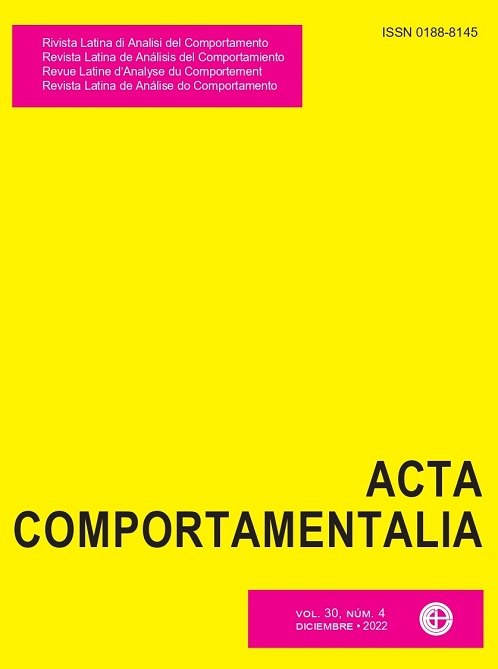Face-to-face control as a political thesis: A mapping in B. F. Skinner’s work
DOI:
https://doi.org/10.32870/ac.v30i4.83983Keywords:
face-to-face control, controlling agencies, social control, B. F. Skinner, politicsAbstract
In his work, Skinner presented the notion of face-to-face control as a political thesis since it would be an alternative to institutional control, i.e., the social control executed by controlling agencies. The aim of this paper is to analyze how the notion of face-to-face control was discussed throughout Skinner’s work, evaluating the potential and limits of that political proposal. Thirteen texts in which Skinner used the term “face to face” as a specific form of social control were selected and examined.
The analyzes showed that the notion of face-to-face control appears repeatedly in opposition to the control played by agencies like government and religion, where rules and laws predominate. In the material analyzed, Walden Two appeared as the main example of a society ordered by face-to-face control, although the expression
‘face-to-face’ was not found in the book published in 1948. The defense of face-to-face control as an alternative to controlling agencies brings Skinner closer to anarchism; that approximation was recognized by Skinner when he called himself a benign anarchist and claim Walden Two as an anarchic community. According to Skinner, the size of the group and imbalance in power relations would be limitations to face-to-face control. Faced with those limitations Skinner mentions psychotherapy as an effective example of face-to-face control in the real world. The paper highlights two main conclusions. First, when Skinner takes Walden Two as an example, approaches to anarchism are problematic; Walden Two is a technocracy and anarchism does not consider that kind of social organization is legitimate. Second, the feasibility of face-to-face control as a transformative policy proposal
is quite questionable since the only “real” example mentioned by Skinner is psychotherapy, a controlling agency that bears the same risks as all institutional control; therapeutic relationship can turn an imbalance, especially when the process is successful and the therapist is able to manipulate relevant variables that control the client’s behavior. These questions do not mean to be against the face-to-face control
thesis but emphasize the need to always contextualize it in a “concrete” analysis of society, which considers power relations at the micro and macro-political levels. It is about problematizing the scope and effectiveness of face-to-face control in the different contexts of behavior analysts’ actions.
Downloads
Downloads
Published
How to Cite
Issue
Section
License

<a rel="license" href="http://creativecommons.org/licenses/by-nc-sa/4.0/"><img alt="Licencia de Creative Commons" style="border-width:0" src="https://i.creativecommons.org/l/by-nc-sa/4.0/88x31.png" /></a><br />Este obra está bajo una <a rel="license" href="http://creativecommons.org/licenses/by-nc-sa/4.0/">licencia de Creative Commons Reconocimiento-NoComercial-CompartirIgual 4.0 Internacional</a>.






